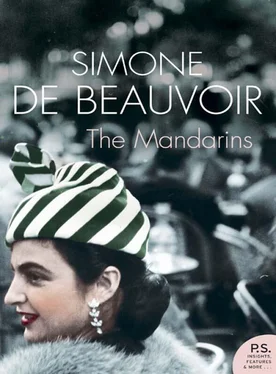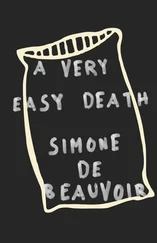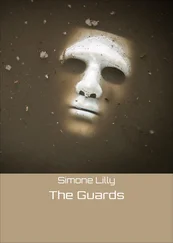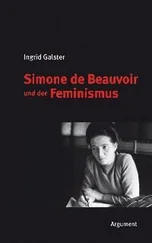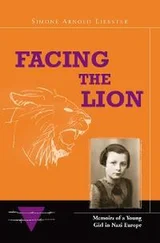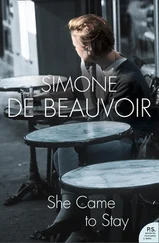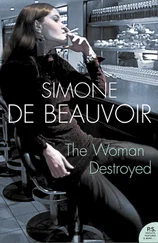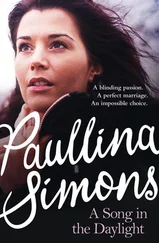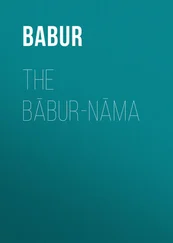‘Travel can be exciting enough,’ Dubreuilh said. ‘But just now it’s much more exciting being here.’
‘Well, as for me,’ Henri said, ‘I’ve got so strong an urge to be somewhere else that I’d go by foot if I had to. And with my shoes full of pebbles!’
‘And what about L’Espoir? You’ll just take off and leave it to itself for a whole month?’
‘Luc will get along quite well without me,’ Henri replied.
He looked at the three of them in amazement. ‘They don’t understand,’ he said to himself. ‘Always the same faces, the same surroundings, the same conversations, the same problems. The more it changes, the more it repeats itself. In the end, you feel as if you’re dying alive.’ Friendship, the great traditional emotions – he had valued them all for what they were worth. But now he needed something else, and the need was so violent that it would have been ridiculous even to attempt an explanation.
‘Merry Christmas!’
The door opened. Vincent, Lambert, Sézenac, Chancel, the whole gang from the newspaper, their cheeks pink from the cold. They had brought along bottles and records, and at the top of their voices they were singing the old refrain they had so often sung together during the feverish August days:
We’ve seen the last of the hun ,
The bastards are all on the run .
Henri smiled at them cheerfully. He felt as young as they, and yet at the same time he also felt as if he had had a small hand in creating them. He joined in the chorus. Suddenly the lights went out, the punch flamed up, sparklers flared and Lambert and Vincent showered Henri with sparks. Paula lit the tiny candles on the Christmas tree.
‘Merry Christmas!’
Couples and small groups continued to arrive. They listened to Django Reinhardt’s guitar, danced, drank; everyone was laughing. Henri took Anne in his arms. In a voice filled with emotion she said, ‘It’s just like the night of the invasion; the same place, the same people.’
‘And now it’s all over.’
‘For us , it’s over,’ she corrected.
He knew what she was thinking. At that very moment Belgian villages were ablaze, the sea was foaming over the Dutch countryside. And yet here in Paris, it was a night of festivities, the first Christmas of the peace. There had to be festivities, sometimes. Because, if there weren’t, what good were victories? This was a holiday; he recognized that familiar smell of alcohol, of tobacco, of perfume and face powder, that smell of long nights. A thousand rainbow-tinted fountains danced in his memory. Before the war there had been so many nights – in the Montparnasse café where they all used to get drunk on coffee and conversation, in the old studios that smelled of still-wet oil paintings, in the little dance halls where he had held the most beautiful of all women, Paula, tightly in his arms. And always at dawn, accompanying the metallic sounds of morning, a gentle ecstatic voice inside him would whisper that the book he was writing would be good and that nothing in the world was more important.
‘You know,’ he said, ‘I’ve decided to write a light novel.’
‘You?’ Anne looked at him in amusement. ‘When do you begin?’
‘Tomorrow.’
Suddenly there was in him the urgent hurry to become again what he had once been, what he had always wanted to be – a writer. Deep inside him he knew again that uneasy joy that came with ‘I’m starting a new book.’ He would write of all those things that were just now being born again: the dawns, the long nights, the trips, happiness.
‘You’re in fine fettle tonight, aren’t you?’ Anne said.
‘I am. I feel as if I’ve just come out of a long dark tunnel. Don’t you?’
She paused a moment and then answered, ‘I don’t know. In spite of everything, there were some good moments in that tunnel.’
‘Yes, I suppose there were, at that.’
He smiled at her. She was looking pretty tonight, and he found her appealing in her severely tailored suit. If she hadn’t been an old friend – as well as Dubreuilh’s wife – he would willingly have tried his chances. He danced with Anne several times in succession and then with Claudie de Belzunce who, in plunging neckline and bedecked with the family jewels, had come slumming among the intellectual elite. Next time he danced with Jeanette Cange, then Lucie Lenoir. He knew them all too well, those women; but there would be other parties, other women.
Henri smiled at Preston who, somewhat unsteadily, was walking towards him across the room. He was the first American acquaintance Henri had come upon during the liberation of Paris in August, and they had fallen happily into each other’s arms.
‘Had to come and celebrate with you,’ Preston said.
‘Then let’s celebrate,’ said Henri.
They drank and then Preston began speaking sentimentally about New York nights. He was quite drunk and he leaned heavily on Henri’s shoulder. ‘You must come to New York,’ he said, and it sounded like a command. ‘I guarantee that you’ll be a huge success.’
‘Wonderful,’ said Henri. ‘I’ll come to New York.’
‘As soon as you get over, rent yourself a small plane,’ said Preston. ‘Best possible way to see the country.’
‘But I don’t know how to fly.’
‘Nothing to it. Easier than driving a car.’
‘Then I’ll learn to fly,’ said Henri.
Yes, decidedly, Portugal would be only a beginning. After that, there would be America, Mexico, Brazil, and maybe even Russia and China. In every place in the world Henri would drive cars again, would fly planes. The blue-grey air was great with promises; the future stretched away to infinity.
Suddenly a silence fell over the room. Henri saw with surprise that Paula was sitting down at the piano. She began to sing. It had been a very long time since that had happened. Henri tried to listen to her with an impartial ear; he had never been able to form a true opinion as to the value of that voice. Certainly it wasn’t mediocre; at times it even sounded like the echo of a bronze bell, muffled in velvet. Once again he asked himself why, exactly, she had given up singing. At the time, he had looked upon it as a sacrifice, an overpowering proof of her love for him. Later he was surprised to find that Paula continually avoided every opportunity that would have challenged her, and he had often wondered if she hadn’t used their love simply as a pretext to escape the test.
There was a burst of applause; Henri applauded with the others.
‘Her voice is still as beautiful as ever,’ Anne said quietly. ‘If she appeared in public again, I’m certain she’d be well received.’
‘Do you really think so?’ Henri asked. ‘Isn’t it a little late?’
‘Why? A few lessons …’ Anne looked hesitantly at Henri. ‘You know, I think it would do her good. You ought to encourage it.’
‘Perhaps you’re right,’ he said.
He studied Paula, who was smiling and listening to Claudie de Belzunce’s gushing compliments. No doubt about it, he thought. It would change her life. Being without anything to do was not doing her any good. And wouldn’t it just simplify things for him. And, after all, why not? Tonight everything seemed possible. Paula would become famous, she would devote herself to her career. And he would be free, would travel wherever he liked, would have brief, happy affairs here and there. Why not? He smiled and walked over to Nadine; she was standing next to the heater, gloomily chewing gum.
‘Why aren’t you dancing?’
She shrugged her shoulders. ‘With whom?’ she asked.
‘With me, if you like.’
She was not pretty. She looked too much like her father, and it was disturbing to see that surly face on the body of a young girl. Her eyes, like Anne’s, were blue, but so cold they seemed at once both worn-out and infantile. And yet, under her woollen dress, her body was more supple, her breasts more firm, than Henri had thought they would be.
Читать дальше
